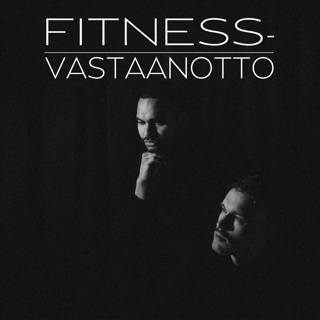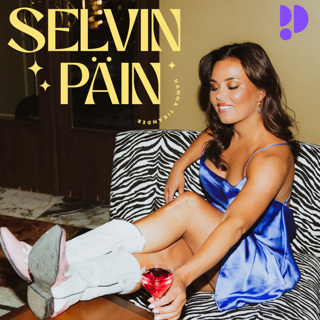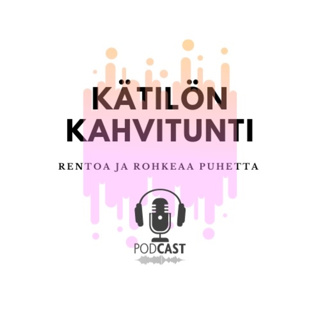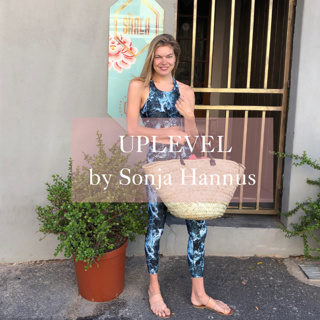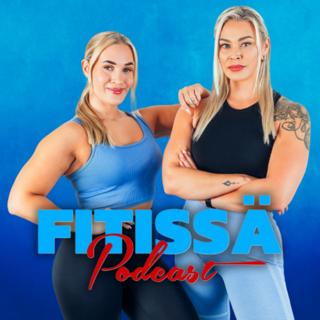
204 - Hormonal changes and mental health: maternal mental health awareness
Advisory: this podcast contains themes of mental health and suicide. Earlier this month Maternal Mental Health Awareness Week was marked across the UK. In this week’s episode Emma Hammond, an employment lawyer specialising in advising women who have experienced discrimination due to the menopause, generously shares her own story. After a traumatic birth with her first child, Emma developed serious symptoms, including psychosis and not sleeping or eating, that ultimately led to medication and hospitalisation. While she wanted a second child, her periods stopped and she was told she was perimenopausal – but an unexpected development took place soon after she was admitted to a mental health hospital. Here she and Dr Louise talk about the powerful role of hormones in women during pregnancy, birth and perimenopause, and how hormones can be overlooked by healthcare professionals caring for women struggling with their mental health. This podcast follows an earlier episode with Emma where she talked about her career, and offered advice on menopause in the workplace. Emma’s three tips: See your GP promptly if you are struggling with your mental health and don’t think you can fix everything yourself Be honest and open with your family and friends about what you are going through so that they can support you Think about life changes and holistic approaches as well as hormonal treatments or medication. Read more about Emma here. Contact the Samaritans for 24-hour, confidential support by calling 116 123.
16 Touko 202330min

203 - Nursing and the menopause: International Nurses Day special episode
In a special episode on the eve of International Nurses Day, this week’s guest is Sue Thomas, an advanced nurse practitioner with an interest in menopause who works alongside Dr Louise at Newson Health Menopause and Wellbeing Centre. They discuss Sue’s 30-year nursing career, including her work in cardiovascular disease prevention, and talk about the vital role nurses play in raising awareness and treating women during the perimenopause and menopause. And with figures showing nine out of ten UK nurses are women, and more than half aged over 41, Sue and Dr Louise discuss the impact of the perimenopause and menopause on the nursing profession, with Sue sharing her own menopause experience and the barriers she faced when trying to access HRT. Sue’s three take home tips for fellow nurses and healthcare professionals are: Look for more education about the menopause, such as the free Confidence in the Menopause course If you are struggling with menopause yourself, be open with colleagues and line managers – we need to look after each other Let’s make the menopause a positive thing. Click here to read an advice article by Sue for healthcare professionals on coping with menopause in the workplace.
9 Touko 202330min

202 - What does the future hold for menopause and HRT? With menopause activist Kate Muir
Making a welcome return to the podcast is menopause activist, author and documentary maker Kate Muir. Kate is the author of Everything You Need to Know About the Menopause (but were too afraid to ask) and the producer behind Davina McCall’s two award-winning menopause documentaries; her third documentary, investigating the contraceptive pill, is currently in production. This week, after more than 200 episodes of the Dr Louise Newson Podcast, Kate is the one asking the questions. She asks Dr Louise about her hopes for HRT and menopause care over the next decade, and about the importance of hormones for healthy ageing and prevention of future disease. They also discuss barriers to accessing HRT, the so-called natural approach to the menopause and tackle claims the menopause is being over-medicalised. And in place of the usual top three tips, Dr Louise shares the four things in her handbag that she can’t live without. For more about Kate visit her website Follow Kate on Twitter @muirkate and Instagram @muirka Kate Muir photo credit: Suki Dhanda
2 Touko 202347min

201 - More than skin deep: menopause, skin and HRT doses with Dr Andrew Weber
Dr Andrew Weber is Medical Director of the Bodyvie Medi-Clinic in London and has more than 40 years of experience as a GP and 25 years specialising in advanced medical aesthetics and cosmetic procedures. In this episode, Dr Weber and Dr Louise Newson discuss the impact of the perimenopause and menopause on the skin and throughout the body, the importance of hormones and benefits of HRT, and why it is crucial healthcare professionals listen to their patients. The episode also covers how HRT has advanced and the importance of individualising treatment to find the right dose – Dr Weber likens HRT to buying a bespoke, made to measure Savile Row suit, rather than an off-the-peg outfit. For more about Dr Andrew Weber and the Bodyvie Medi-Clinic visit bodyvie.com Follow Dr Andrew Weber on Twitter at @drandrewweber
25 Huhti 202327min

200 - Osteoporosis: how to protect your bones during menopause and beyond
Bone density for women can plummet around the time of the perimenopause and menopause. An estimated one in two women over 50 (and who do not take HRT) worldwide will develop osteoporosis. This puts women at high risk of bone fractures, which can have a major impact on health and wellbeing. Here Chicago-based Dr Kristi DeSapri, who specialises in bone health, joins Dr Louise Newson to talk about what can increase the risk of your bones becoming weak, the role of hormonal changes in this and what to do about it. Hear what the latest research says about the valuable role that HRT can play in protecting bones to keep you fit and strong in the future. Dr DeSapri shares her top three tips for listeners worried about their bone health: Find out how healthy your bones are and whether you could be at risk of fractures. This could include booking a bone density scan, or completing free online assessments and taking that information to your doctor Increasing evidence suggests HRT can help protect bone health, so consider this treatment option to keep your bones strong Find out about the importance of bone health so that you can be your own advocate - make sure you have the right information to make the right decisions. You can follow Dr DeSapri on Instagram @boneandbodywh. Her website is www.boneandbodywh.com
18 Huhti 202332min

199 - Rosacea and menopause: what’s the link?
Consultant Dermatologist Dr Sajjad Rajpar makes a welcome return to the podcast this week to talk about the chronic skin condition rosacea, and how it can be impacted by the perimenopause and menopause. In a special episode to mark Rosacea Awareness Month, Dr Louise and Dr Sajjad discuss the physical and psychological effects of rosacea, as well as offering practical advice on avoiding triggers, and treatment strategies. Dr Sajjad’s top three tops if you have or suspect you have rosacea: Really look at your skincare routine and strip it right back to a gentle non-foaming cleanser and a light moisturiser containing ceramides. Sunlight can be a trigger for rosacea, so block out the sun as much as you can. Consider talking to your GP about trying active topical ingredients such as azelaic acid, metronidazole and ivermectin, because they can be a real game changer. For more information about Dr Sajjad, visit www.midlandskin.co.uk
11 Huhti 202329min

198 - Joe Wicks: how to exercise and stay active during the menopause
Joe Wicks really needs no introduction: he’s a fitness coach, presenter and bestselling author who kept the nation moving during the COVID-19 lockdowns. Joe is also one of the expert contributors in Dr Louise Newson’s new book, The Definitive Guide to the Perimenopause and Menopause. In this episode, Joe and Dr Louise discuss the importance of keeping active, and finding the motivation and time to exercise during the perimenopause and menopause. Joe offers tips on setting achievable goals, plus beneficial exercises, and they talk about how replacing hormones with HRT will help ease symptoms so women can also better focus on exercise and nutrition. Joe’s top three tips if you are struggling with motivation to exercise: Prioritise your sleep: see sleep as an investment to give you more energy to work out Work out in the morning: working out earlier can be transformative to how you take on stress at work, and for your relationships too Prep like a boss: meal prepping on a weekend will protect you against fast foods and convenience foods during the week. Follow Joe Wicks on Instagram @thebodycoach Find out more about the Body Coach app on Instagram @bodycoachapp and online at www.thebodycoach.com
4 Huhti 202331min

197 - The problem with medicalising the menopause without HRT
Advisory: this podcast contains themes of mental health and suicide. In this episode, Jo shares a moving account of her menopause experience before finding the right treatment for her. Struggling with numerous symptoms including vertigo, dry mouth and eyes, joint pain and vaginal dryness, Jo went from not visiting her GP for six years to monthly appointments. After being prescribed a cocktail of medication and spending thousands of pounds on dental treatment to no avail, Jo felt she was never going to get better. She talks to Dr Louise about the effect of low hormones, and the transformative impact finding the right dose and type of HRT had on her mental and physical health. Jo’s three top tips: Download a period tracker, such as the balance menopause support app, to track your periods. This will help you notice any changes and identify any patterns of other symptoms occurring. Educate yourself: try to read as much as possible about the menopause so that you can understand what's happening with your body. Reach out to friends: by being honest and saying how you're feeling, you can help others to open up too.
28 Maalis 202327min








